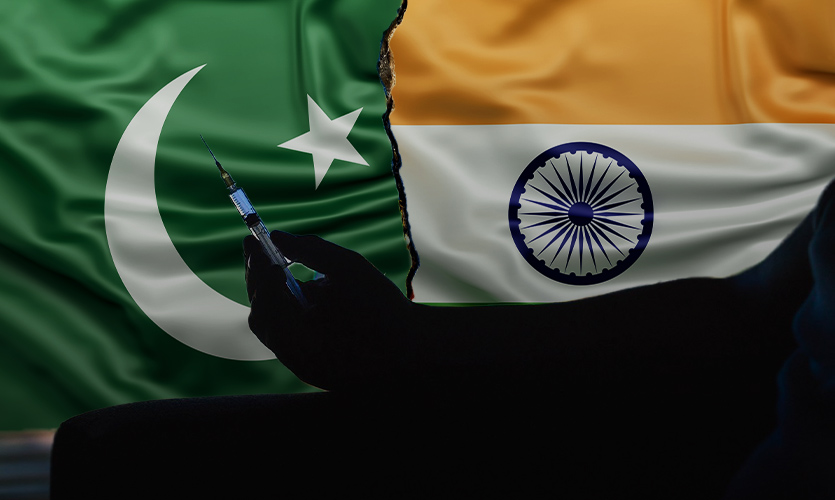In its proxy war against India in Kashmir Valley, Islamabad is seemingly employing narco-terrorism as a new weapon in order to target adolescents and provide funding for terrorist actions supported by Pakistan. According to research fellow Ayjaz Wani’s article for the Observer Research Foundation (ORF), Kashmir has seen an alarming increase in narco-terrorism, and religious leaders’ complacency and silence on the subject have only made matters worse.
Reportedly, heroin usage in Kashmir Valley has increased by 2000 percent during the past five years. Pakistan has now turned to using drones to smuggle significant quantities of drugs into Kashmir. Jammu and Kashmir Police chief Dilbag Singh has referred to Pakistani narco-terrorism as “the biggest challenge”. Purportedly, the country has been successful in dismantling the conventional systems of informal control over the past 30 years by importing opposing Islamic doctrines like the Jamaat-i-Islami, Salafism, and Tableegh. Traditional social mores and identities are no longer relevant as a result of these opposing ideologies that have suppressed society’s sensible voices. People’s adherence to these ideals has subsequently split society at the local level, encouraging adolescent aberrant behaviour.
According to Wani, this unrestrained deviant behaviour is mostly to blame for the radicalisation, extremism, and current surge in drug consumption. The mullahs and other religious leaders have adhered to their own teachings rather than the Quranic teachings and prophetic sayings against drug consumption during such religious meetings, choosing not to confront drug abuse and the role of Pakistan in a serious manner. The mullahs affiliated with these contesting ideologies deliver sermons on Fridays and festive days in mosques. While they remain deeply invoked to their doctrines, and their discourses are taken extremely seriously, they have never spoken against the drug abuse rampant within the society.
As described by the ORF report, these religious leaders have chosen to continue supporting separatists. “Repeated calls for strikes by separatists and militants, long-term curfews imposed by the security agencies, and the unending conflict have increased anxiety, depression, boredom, and psychological stress,” says the article. Wani claims that the nearly complete lack of leisure activities in Jammu and Kashmir has drawn the impressionable young minds of the region to the dangers of drug addiction.
All socioeconomic strata in Kashmir Valley have seen an alarming increase in drug use. A new drug user inevitably joins Kashmir’s drug rehabilitation facility every hour. Only 489 instances were registered by the Government Medical College’s oral substitution therapy centre in Srinagar, in 2016. However, in 2021, that number exceeded 10,000. This startling 2000 percent increase over the past five years has shocked both the J&K administration and the security establishment.
Pakistan has recently employed a twin approach to maintain the conflict and undermine the social fabric of the valley, delivering both guns and narcotics. The most often used opiate in Kashmir is heroin, which is trafficked from Pakistan. Drug trafficking across borders gives terrorism financial support and if not stopped immediately, it may damage the lives of children living in the region. Drug revenue, particularly heroin revenue, funds separatist operations and propagates other centrifugal tendencies. Security services have discovered increased terror modules that pose a greater threat to society and security, according to the ORF. Ten persons were detained in June 2021, when a narco-terrorist network was dismantled in the Baramulla area. They were found to be in possession of Chinese grenades, four firearms, and heroin worth Rs 45 crores.
Narco-terrorist outfits are reportedly spread across Jammu and Kashmir, along with areas outside the Union Territory that surround it. However, the size of terrorist actions has been significantly reduced because of an improved security grid, and enhanced cooperation among different security services.










